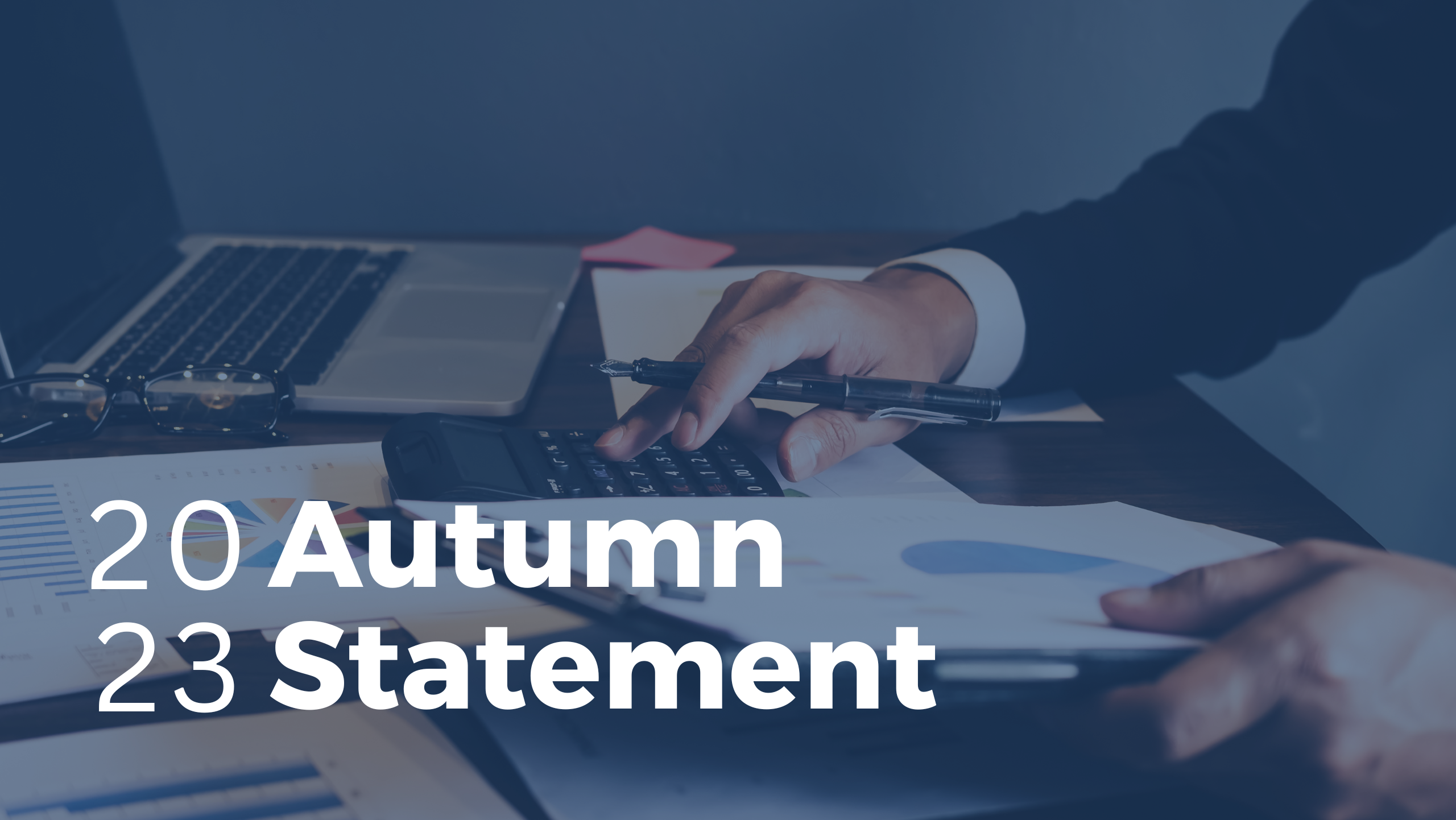On 22nd November 2023, Chancellor Jeremy Hunt presented his Autumn Statement to Parliament and started making, in his words, the long-term decisions necessary to strengthen the economy and build a brighter future. Fuelled by falling inflation and stabilised public finances, focus is now being applied to reducing debt, cutting taxes, and rewarding hard work.
There is plenty to digest following the Statement, so here are some of the highlights from the Statement to get you up to speed.
National Insurance Contributions (NICs)
All employees earning more than £12,570 a year pay Class 1 NICs. The main rate of Class 1 NICs will be cut from 12% to 10% from 6 January 2024. This will come into effect from January 2024 and, over a full year, the average worker on £35,400 will receive a NIC reduction of over £450. Workers earning more than £50,270 a year will receive a NIC reduction of £754.
For self-employed individuals with profits of more than £12,570 a year, changes have been made to the two types of NIC: Class 2 and Class 4. Changes are as follows:
- Class 2 NICs have been at a flat rate sum of £179.40 a year (£3.45 a week) in 2023/24, but no one will be required to pay the charge from 6 April 2024.
- The main rate of Class 4 NICs will be cut from 9% to 8% from 6 April 2024. Class 4 NICs will continue to be calculated at 2% on profits over £50,270.
Taken together, these changes will result in an average self-employed person with profits of £28,200 saving £336 in 2024/25.
National Minimum Wage
The biggest-ever increase to the National Living Wage has been announced, with the government fully accepting the recommendations made by the Low Pay Commission. Eligibility for the National Living Wage will also be extended by reducing the age threshold to 21-year-olds for the first time (previously applied to those aged 23 and over only). From 1 April 2024, the minimum pay rates will be as follows:
- National Living Wage (age 21 and over) – £11.44 (9.8% increase)
- 18 to 20 – £8.60 (14.8% increase)
- 16 to 17 – £6.40 (21.2% increase)
- Apprentices – £6.40 (21.2% increase)
Business Rates
A new business rates support package worth £4.3 billion will be made available over the next five years to support small businesses and the high street. For 2024/25, the small business multiplier will continue to be frozen and the 75% Retail, Hospitality and Leisure business rates relief will continue to apply.
The standard rate multiplier will be uprated in line with the September 2023 CPI of 6.7%. While this will increase business rates bills for some, large retailers are expected to benefit from hundreds of millions of pounds of tax relief per year as a result of full expensing.
Income Tax
The personal allowance and basic rate band threshold are still frozen at their 2021/22 levels and, subject to the outcome of the next general election, are expected to remain at such until 5 April 2028. As earnings increase, individuals will move into higher tax bands. This is often referred to as ‘fiscal drag’ because it will raise more tax without the government increasing income tax rates.
The tax-free personal allowance of £12,570 continues to be partially and then fully withdrawn for higher earners, with £1 of personal allowance lost for every £2 of adjusted net income over £100,000.
Savings income continues to benefit from a 0% personal savings allowance of £1,000 for basic rate taxpayers and £500 for higher rate taxpayers. Dividend income attracts a 0% dividend allowance of £500 in 2024/25, down from the £1,000 allowance seen in 2023/24.
Pension Reform
The government has announced a comprehensive package of pension reforms that aim to provide better outcomes for savers, drive a more consolidated pensions market and enable pension funds to invest in a diverse portfolio.
With people (especially younger generations) changing jobs more frequently than used to be the case, the government wants to tackle the long-standing problem of “small pot” pensions that accumulate with each short- to medium-term employment. There will be a call for evidence on a ‘lifetime provider model’ which would allow individuals to have contributions paid into their existing pension scheme when they change employer, providing greater agency and control over their pension.
How Chorus Accounting Can Help You
As we move into 2024, there are a lot of tax changes already scheduled, plus we can expect more with a Spring Budget and a general election on the horizon. Here at Chorus Accounting, we are here to work alongside you and help you prosper, so please do get in touch at any time. Call 01202 332500 and one of the team will be happy to help.

